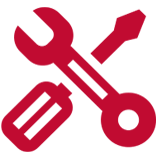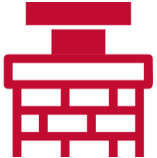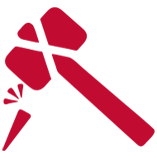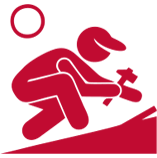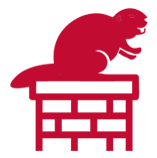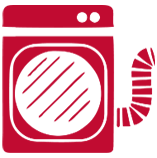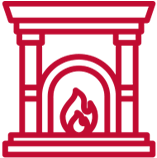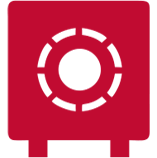A leaking chimney is a nuisance and, unfortunately, more common than you might think. As with any other chimney issue, prompt service and timely repairs are always the keys to preventing a minor leak from becoming a full-blown disaster.
If you are concerned about your chimney’s structural integrity or have noticed damage to your chimney or fireplace, contact the premier Chimney Company in Denver, the Chimney Kings! With years of experience serving our outstanding, unique customers throughout the Mile High City, we are your go-to company for chimney system repairs, maintenance, and cleanings.
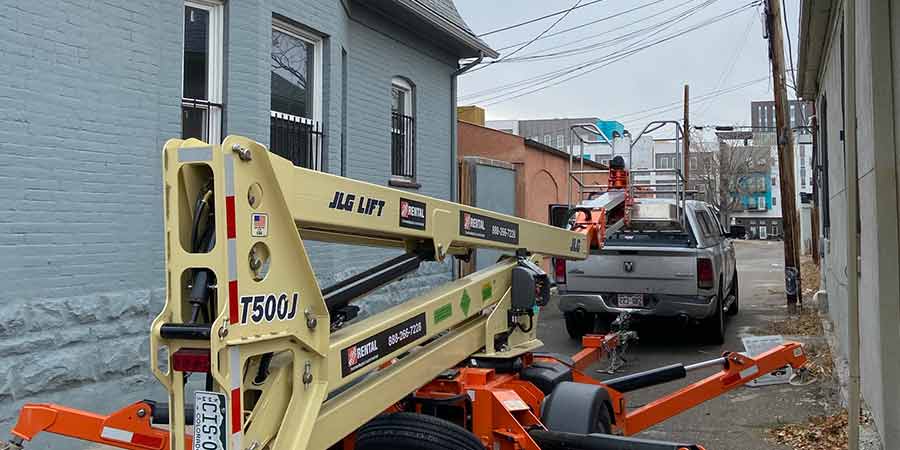
A Four-Season Problem: Common Causes of Wood Burning Fireplace Chimney Leaks
Mother Nature can wreak havoc on chimney systems no matter what the season. From rain and high winds in the spring and summer to ice and snow in winter, your fireplace is vulnerable to damage all year round.
Taking the proper preventative measures can always help you protect your fireplace and home from unnecessary damage. Here are a few of the most common causes of structural damage to wood-burning fireplaces:
Is Your Chimney Leaking? The Absence of a Chimney Crown or Chimney Cap Might be the Culprit
Both chimney crowns and caps perform a singular crucial function – protecting the inner chimney liner from damage. Unfortunately, if the cap and crown are severely damaged or missing entirely, the liner is left vulnerable to the elements.
Water infiltration, leaks, and widespread damage are inevitable if you do not hire a professional to properly care for your chimney cap and crown. We recommend prompt chimney cap and Chimney Crown Installation if either component is missing.
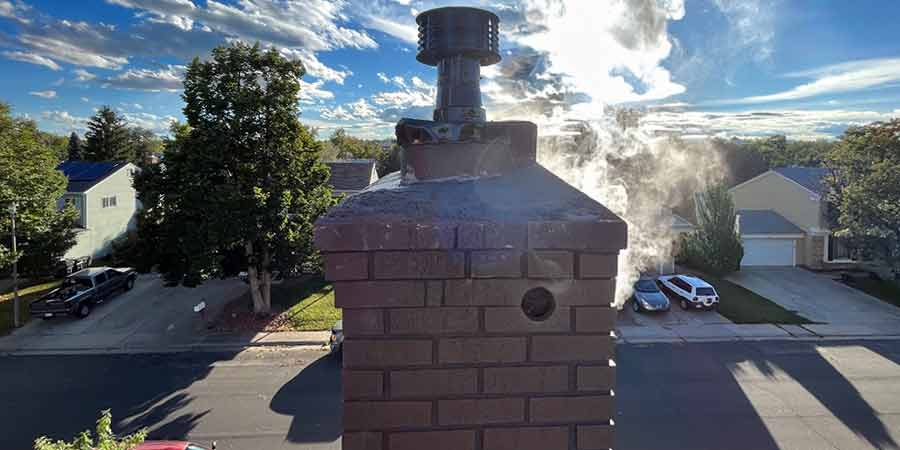
Improperly Installed Chimney Flashing
Chimney flashing is installed where the roof and the chimney meet. There are actually three types of chimney flashing: step flashing, pan flashing, and counter flashing, and it is the job of all these components to prevent water from leaking into the gap between the roof and masonry.
Unfortunately, if the flashing is not installed correctly or is damaged, old, or corroded, water can easily cause extensive damage to your roof, masonry, and, eventually, inside your home. Depending on the quality of the product and installation, flashing can last up to 30 years.
Cracks in Masonry Fireplaces and Chimney Mortar Joints
Modern chimneys are made from either metal or different types of masonry, including stone and brick. Over time, the mortar between masonry bricks or stone will deteriorate, allowing moisture to seep into the fireplace and damage the interior components, namely the metal liner.
 Rain, Snow, and Condensation: The Negative Impact of Extreme Weather Conditions
Rain, Snow, and Condensation: The Negative Impact of Extreme Weather Conditions
According to the National Weather Service, the Denver Metro Area receives approximately 56 inches of snow yearly. The summers are typically arid and warm, and one of the perks of calling the Mile High City home is that residents experience around 300 days of sunshine each year!
Unfortunately, while the snow is majestic and the sunshine is glorious, the constant UV exposure during summer and winter’s snow, ice, and moisture spell disaster for your chimney. Improper maintenance and lack of prompt, regular repairs can cause your chimney to fall apart, leaving you with uncontrolled leaks and damage that can hamper your ability to enjoy the regular burning season.
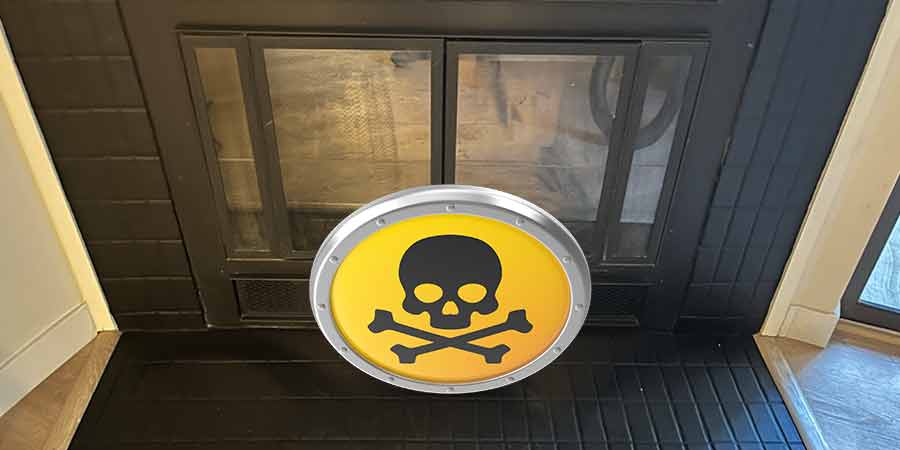
The Dangers of Leaks in Your Chimney System
Now that you better understand how different types of damage can lead to leaks, it’s time to learn more information about the potential dangers associated with chimney leaks. Ignoring a minor leak and excess moisture can be a disaster beyond chimney, roof, and ceiling water damage.
Extensive Chimney Damage and Costly Repairs
First and foremost, chimney leaks can cause damage to every part of your chimney, from the cap to the flue liner, hearth, and firebox. During winter mainly, minor chimney damage can quickly spread, causing a seemingly insignificant leak to become an overwhelming problem that will eventually impact your chimney structure and functionality.
Structured maintenance and regular Comprehensive Chimney Services in Denver are the keys to preventing a minor crack from spreading and causing severe and widespread water damage throughout your home.
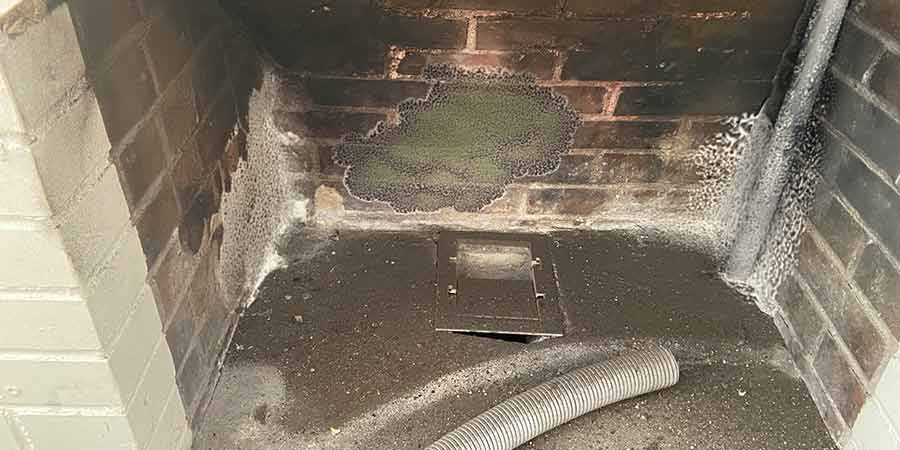
The Hazards of Chimney Mold and Mildew
Under the right conditions, most varieties of mold can spread rapidly. All mold needs to thrive is darkness, organic materials, and moisture, and your chimney is the perfect breeding ground for this potentially dangerous fungus.
Often, the first sign of mold inside your chimney is a musty odor. If you notice the telltale smell of mold, don’t hesitate to Contact Denver’s Chimney Experts ASAP. In addition to posing a severe health threat to your friends and family, mold from water damage can spread out of control into the rest of your home.
A Higher Incidence of Chimney Fires
Your chimney is leaking, and the water is infiltrating your chimney liner and flue unbeknownst to you. The resulting damage can do more than negatively impact your fireplace’s energy efficiency; it can actually increase the incidents of chimney fires.
Ideally, when you start a cozy fire inside your fireplace, proper ventilation ensures the warm air and smoke easily escape through the chimney’s top. Gaps and cracks in the liner allow dangerous sparks and hot air to escape through the liner. The combination of excessive creosote buildup and a damaged liner can significantly increase the risk of a potentially devastating house fire.
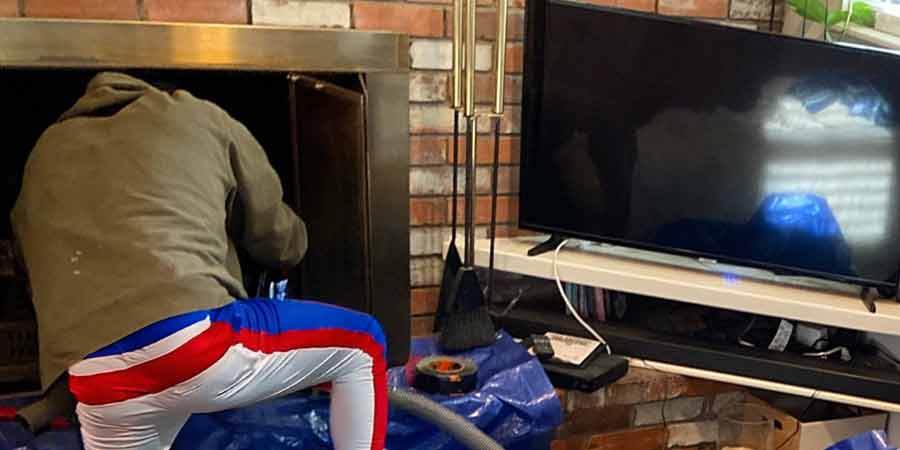
Prevent a Chimney Fire with Regular Chimney Sweeping
According to the CSIA, or Chimney Safety Institute of America, creosote accumulation is one of the leading causes of house fires. Creosote is a naturally occurring by-product of wood combustion, and even if you burn dry, seasoned wood, you can still expect creosote buildup.
A Thorough Chimney Cleaning is the best way to eliminate creosote, but there are ways you can lessen the fire hazard by preventing the accumulation of creosote in your Denver chimney, including:
- Avoid burning artificial wood or logs
- Stack wood inside the fireplace properly to allow for adequate oxygen flow
- Open the damper before starting the fire to also ensure oxygenation
In addition to posing a dangerous fire hazard, creosote buildup can block airflow, allowing smoke and carbon monoxide to leak into your living space.
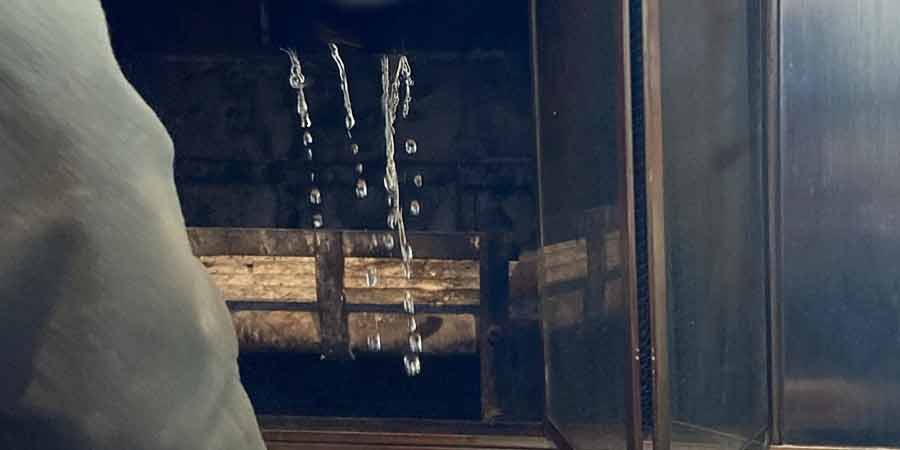
 Keep Your Fireplace System Running Efficiently: Signs It’s Time to Schedule Prompt Repairs
Keep Your Fireplace System Running Efficiently: Signs It’s Time to Schedule Prompt Repairs
Chimney leaks, even minor cracks, are an emergency that requires immediate attention and potential masonry repair. Watch for these telltale signs; it’s time to contact a licensed professional for Chimney Inspections for Leak Prevention and immediate repairs:
You Notice Water Intrusion Coming from the Fireplace and Ceiling
Unfortunately, many homeowners don’t realize their chimneys are leaking until there are visible signs of water damage inside their homes. Most water stains will appear on the ceiling and walls near the chimney and quickly spread if the leak is not immediately repaired.
Water damage can also be a sign of a roof leak, which can occur near the chimney, mainly if the roof flashing is in disrepair. Severe weather is a common cause of acute roof and chimney damage, so if you recently suffered a significant storm and noticed water intrusion coming from the ceiling or chimney, contact us immediately for Brick Tuckpointing to Combat Weather Damage.
A Rusty Firebox
One of the more apparent signs of chimney leaks is a corroded firebox and chimney damper. When water infiltrates the chimney, eventually, it will trickle down into the firebox, leading to extensive damage that can significantly impact the fireplace system’s structural integrity.
Watch for staining and flaking inside the firebox as well, as these are two additional signs of severe deterioration. Depending on the usage and upkeep, a firebox will typically last anywhere from 10 to 30 years, but an immediate replacement is warranted if there is widespread damage.
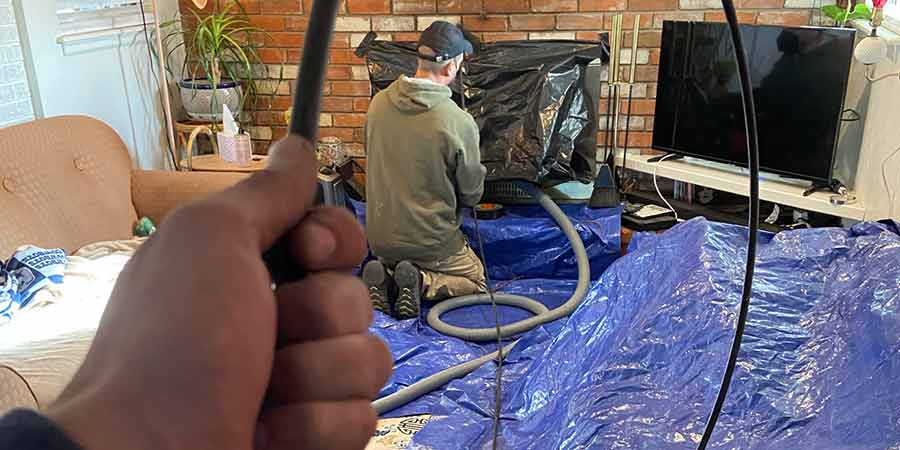
Chimney Efflorescence
Many homeowners mistakenly believe that white film on their chimneys is just a cosmetic issue that can easily be cleaned, but the root cause is much more complicated and potentially devastating. The white powdery film is called efflorescence and occurs when moisture infiltrates the porous bricks or masonry, which is a sign of extensive water damage.
Extensive Cracks, Damage, and Deterioration to the Chimney Structure
When there is widespread and very noticeable damage to several components, it is often too late to make repairs. In these cases, a total fireplace replacement is warranted.
Extensive damage is not only a structural issue, but continuous use of a severely compromised fireplace system can also significantly impact indoor air quality, causing your family to become very sick. Ultimately, a professional can help you determine if the fireplace can be repaired or if it is time to upgrade.
The Importance of Regular Chimney Sweeping
You already understand the importance of having your chimney swept regularly, but did you know that your annual cleaning and chimney inspection is about more than ensuring the unit runs at peak efficiency?
When your chimney service cleans the excess creosote buildup, ash, and debris from the chimney lining, they look for signs of damage and leaks that were otherwise covered by all that gunk. These newly exposed cracks can be repaired immediately, ensuring they do not spread and cause an even bigger issue down the road.
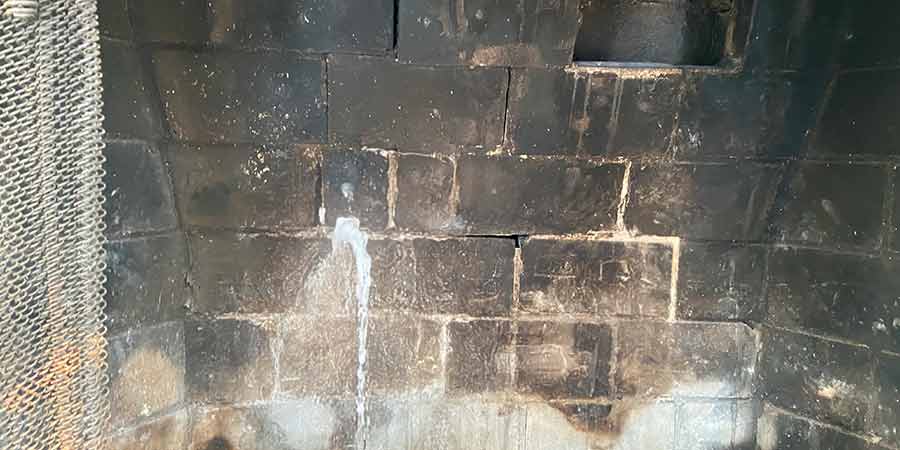
Prevent Chimney Leaks and Water Damage: A Few Chimney Maintenance Basics
The pros at the Chimney Kings understand the ups and downs of maintaining fireplace systems throughout the Denver area and are available to help. As a conscientious homeowner, you understand proper maintenance is the easiest way to prevent serious and costly repairs. Here are a few preventive measures you can take immediately that are far less expensive than repairs to prevent leaks and moisture damage:
 Schedule Regular Maintenance and Inspection of Your Chimney System
Schedule Regular Maintenance and Inspection of Your Chimney System
Regular inspections are the cornerstone of proper chimney and fireplace care. Depending on the age and condition of your chimney system, we recommend scheduling an inspection at least one to two times per year.
Chimney sweeps experience a massive influx of customers during the winter months. This is why we recommend you schedule an inspection for the spring or summer when the fireplace is not regularly used or at the early signs of chimney damage and leaks. During regular inspections, the CSIA-certified chimney technician will:
- Perform an interior inspection
- Perform an exterior inspection
- Inspection of the fireplace flue
- Examination for any obstructions, including blockages and pests
- Creosote cleaning and proper disposal
- The performance of Professional Chimney Repair
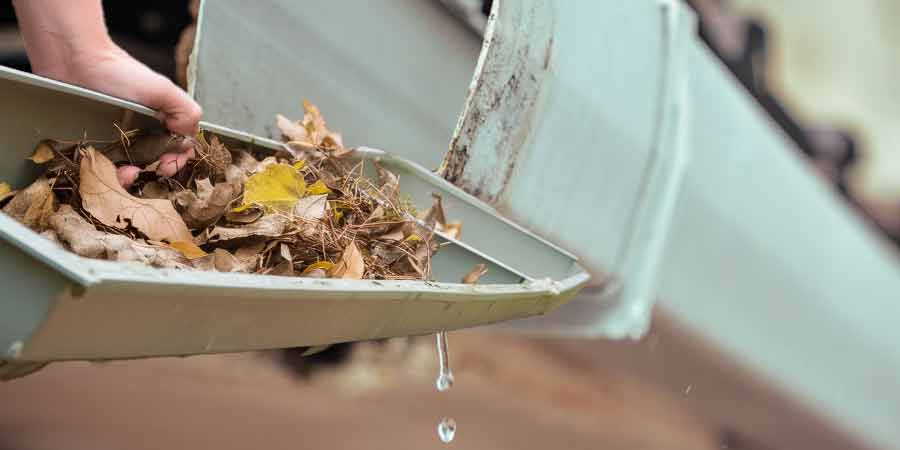
Clean Your Gutters
One of the most straightforward DIY maintenance tips to prevent cracks and leaks is periodically cleaning your gutters! When gutters fill up with mud, leaves, and other debris, they cannot perform their essential function, which is to divert water away from the roof.
After a rainstorm or during the spring thaw, the liquid inside dirty gutters will eventually travel upwards, damaging your roof, flashing, and eating away at the masonry chimney. The easiest way to clean your gutters is to grab a ladder and get your hands dirty by scooping out the slurry.
Install Chimney Crickets
Otherwise known as chimney saddles, a chimney cricket is a simple yet effective device installed between the sidewall and the chimney’s peak. The aluminum or steel cricket helps divert melting snow and water away from the chimney. If you don’t already have chimney crickets or a cap installed, they are inexpensive and effective ways to protect your roof and chimney from moisture damage and leaks.
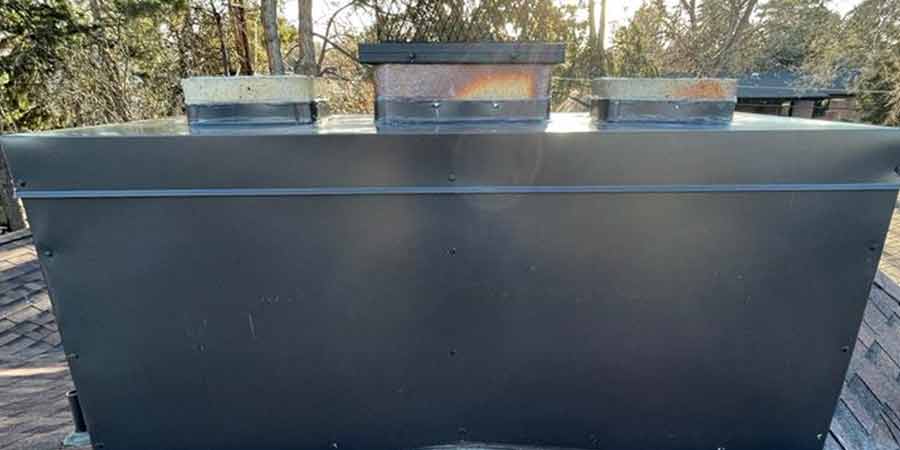
Ask About Masonry Waterproofing
Another straightforward chimney maintenance basic is waterproofing, which involves applying a protective coating to the brick or stone. This simple type of chimney maintenance can save you hundreds on future repairs and help prevent moisture from damaging your chimney.
 Prevent New or Exacerbated Leaks: Tips for Finding the Right Chimney Maintenance Company
Prevent New or Exacerbated Leaks: Tips for Finding the Right Chimney Maintenance Company
You are keenly aware of the importance of Fireplace Repairs for Efficient Heating and want to take the necessary steps to prevent a chimney fire, but how do you find a reputable professional in your area to properly clean and care for your chimney? Hundreds of outstanding companies in the Denver area will expertly care for your chimney system, but you want to work with the best of the best.
Follow these simple tips to help narrow your search and find a team to help keep your fireplace system running efficiently and prevent chimney leaks:
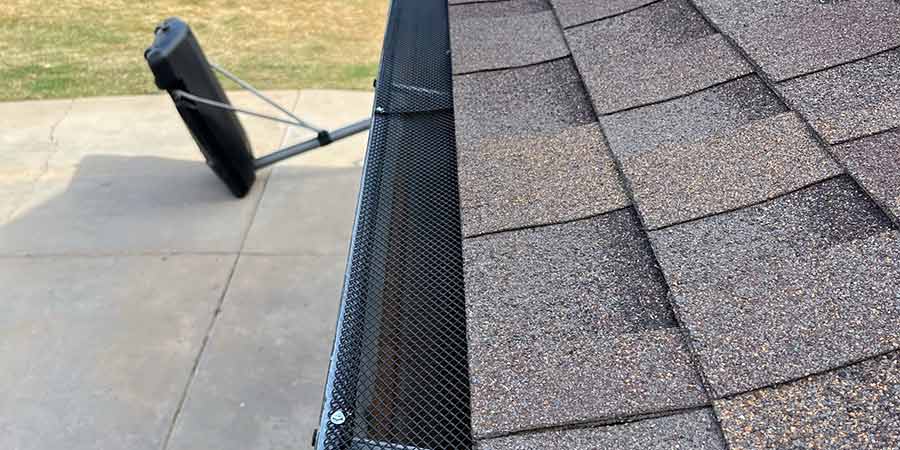
 Hire a CSIA Certified Chimney Professional
Hire a CSIA Certified Chimney Professional
Look for technicians certified through the CSIA. A CSIA-certified chimney sweep and professional will possess the training and know-how necessary to maintain and repair any chimney system and help prevent potentially devastating chimney fires.
When you take the time to research professionals in your area, you enjoy the peace of mind that comes with knowing you are working with an experienced individual who can keep your chimney performing at its peak.
Ask For At Least Three Price Estimates
Whether you are installing fireplaces or need a simple chimney cleaning or chimney inspection, always receive free price quotes from at least three professionals. The quote should include a breakdown of all related costs, including repairs. Repair costs can vary, so do your due diligence by comparing all these quotes and decide based on costs and the company’s reputation.
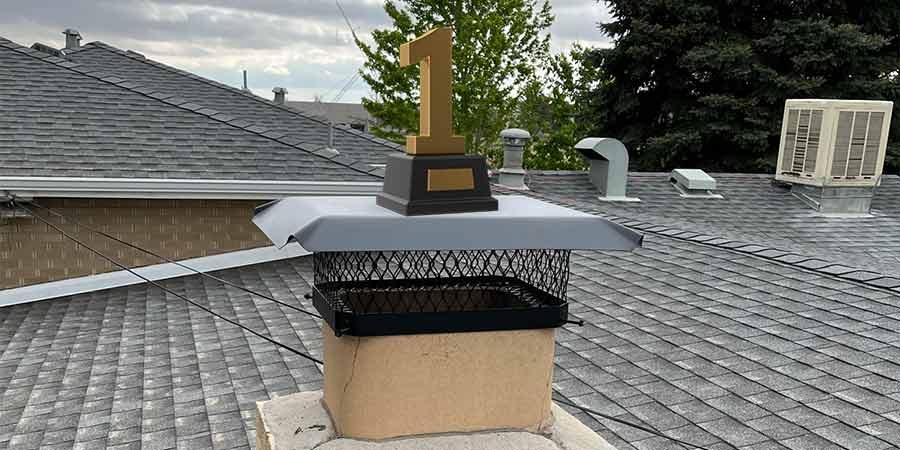
Look to Friends and Family for Recommendations
Many Denver homeowners enjoy the cozy benefits of fireplaces, so don’t hesitate to ask one of your nearest and dearest for a recommendation. Inquire about their time spent with the company’s representative, their experience with a chimney sweeping or chimney inspection, and if they would work with the professionals again.
Online reviews and rating websites, including the Better Business Bureau, Trustpilot, Angi, and Google Reviews, are another great resource to help narrow your search.
 Contact The Professional Team at the Chimney Kings
Contact The Professional Team at the Chimney Kings
From a simple chimney sweeping, chimney inspection, or Firebox Repair to an extensive overhaul of major chimney systems, look to the team at the Chimney Kings to handle all your chimney maintenance and repairs. Chimney leaks are an unfortunate part of owning a fireplace, but we can help ensure that any minor leaks are caught and repaired early before they become a severe problem.
An improperly maintained chimney is a serious fire hazard, and we can help you take the necessary preventive measures to ensure your family is not devastated by a chimney fire. We specialize in masonry repair and have the tools, skills, and expertise required to safely and efficiently eliminate dangerous creosote buildup.
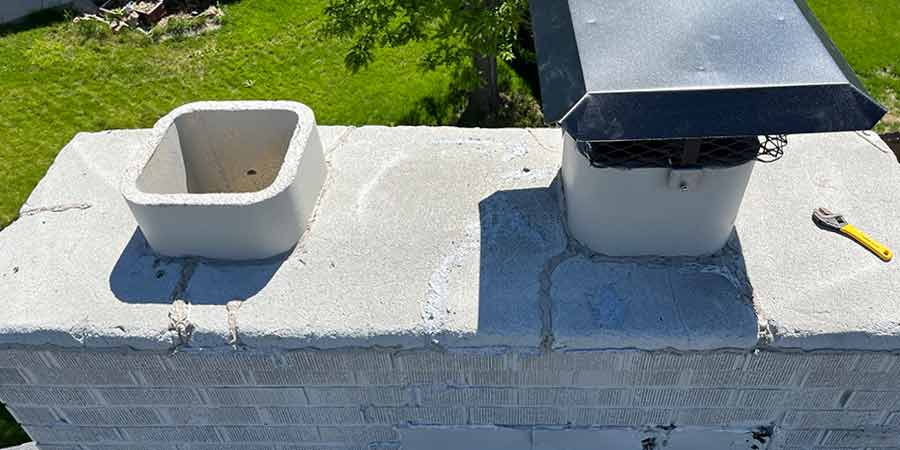
 The Premier Chimney and Fireplace Experts
The Premier Chimney and Fireplace Experts
Whether the regular burning season is around the corner or you are enjoying a beautiful Denver summer and your chimney system is sitting idle, our team of trained pros can help you diagnose and resolve any problem. We offer our Denver area customers an impressive range of services, including:
- Repair of chimney leaks
- Installation of a chimney crown or Protective Chimney Caps
- Gas fireplace maintenance
- Chimney inspection and chimney sweeping
- Animal Removal for Chimney Safety
- Roof Repair
- Dryer vent cleaning
Chimney Leaks Are More Common Than You Might Think
If you own and operate a chimney, chances are you will deal with chimney leaks at some point. Damaged masonry, a missing or broken chimney cap, or even dirty gutters are common causes. Luckily, you as a homeowner can prevent leaks in many ways, including having your chimney swept and inspected by a CSIA-certified chimney professional and following a few basics of chimney maintenance.
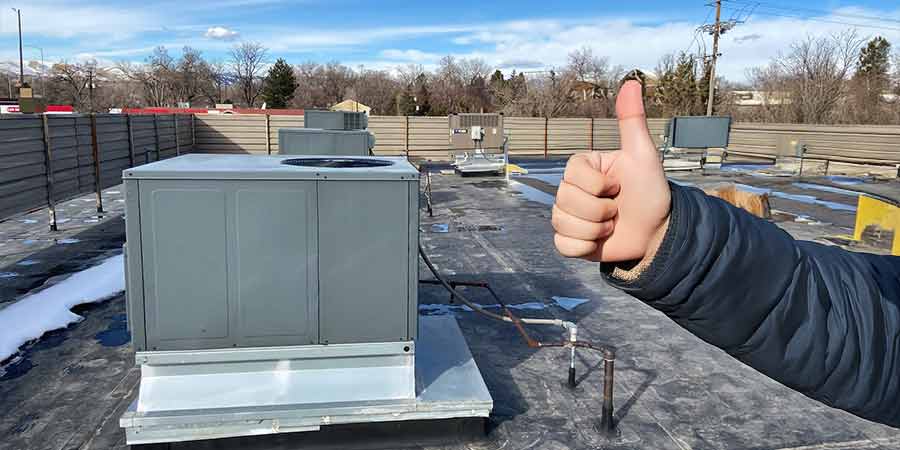
Our Denver Customers Also Ask
Why Is My Chimney Leaking When It Rains?
You hear the telltale dripping sound of a leaking chimney, but what is the problem? There could be many reasons your chimney leaks, including:
- Masonry damage
- Flashing damage
- Damaged roofing shingles
- Damaged mortar joints
- Damaged or missing chimney cap
How to Stop Rainwater from Coming Down a Chimney?
Installing a chimney cap is one of the simplest and best preventive measures to stop rainwater from leaking down through your chimney and into your fireplace lining. If your chimney cap is extensively damaged or missing, don’t worry; we offer Chimney Lining Solutions for Denver Homes.
How Do I Stop My Chimney from Leaking?
Preventative maintenance and immediate repairs are the two most straightforward ways to stop chimney leaks from causing extensive damage to your entire chimney system.


